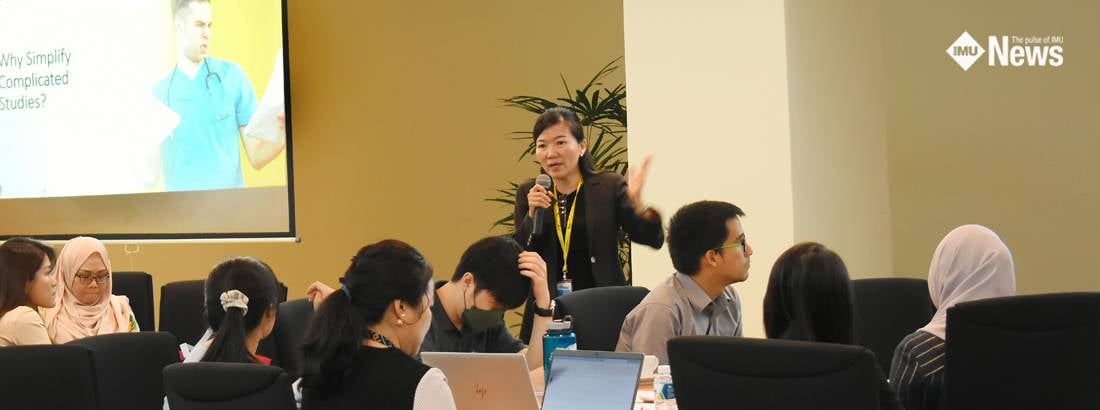Evidence-based nutrition is important to support new food product innovation, renovation and nutrition labelling and claims substantiation. The Nutrition and Dietetics Division, School of Health Sciences in collaboration with Centre for Transformative Nutrition and Health organised a workshop titled “Marketing Science for Food Industry: Making Sense of Nutrition Research” from 8-9 November 2023.
This one and a half-day workshop was designed to empower food industries with the essential skills to interpret quality of scientific research and explain statistical findings in research studies. The skills obtained can be applied for the interpretation for nutrition labelling and claims of food products.
We received overwhelming response and interest to the workshop with a total of 62 attendees which included corporate nutritionist, dietitians, product specialist and brand managers from 23 different food industries were present at the workshop.
Some of the eminent speakers include Prof Karuthan Chinna from UCSI University, Dr Tee E Siong from the Food Regulation Committee Ministry of Health, Dr Tryphena Liao and Angeline Joseph from ZeroRange Healthcare Sdn Bhd, and Prof Winnie Chee and Dr Chong Pei Nee from International Medical University.
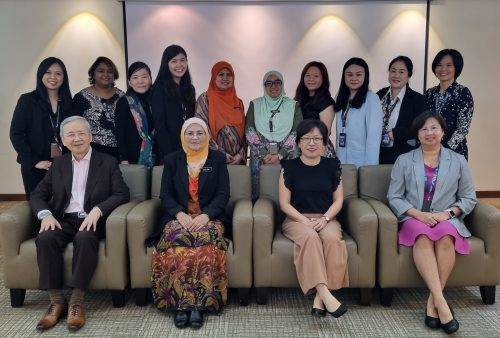
The workshop started with the introduction to various scientific studies in nutrition and statistics, followed by a session on examining quality of nutrition studies and what needs to be known when it comes to application of health claims on bioactive food components.
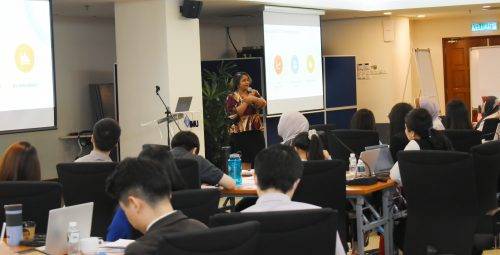
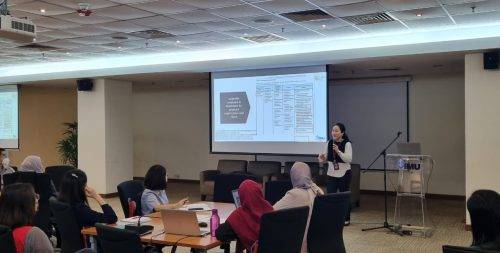
All the skills learned were then applied in a hands-on session by simplifying these complicated studies to promote the product findings to healthcare professionals and consumers.
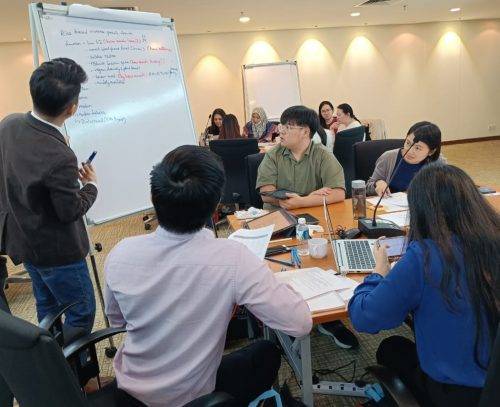
Participants brainstormed ideas for the mock presentation during the case study and role play session.
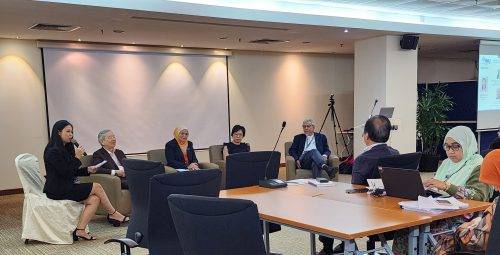
(L-R): Dr Serene Tung as the moderator of the forum with panel speakers, Dr Tee E Siong, Ts. Zailina binti Abdul Majid, Wong Mei Ching and Prof Datuk Lokman Hakim Sulaiman
The workshop ended with an interactive forum on the regulatory environment in the country especially in the aspect of food innovation and renovation. One of the key challenges in the introduction of new and healthier products with novel ingredients and technology is communicating to the public the right health message supported by evidence.
Some of the key points discussed include the various incentives and support from various stakeholders including the government in facilitating healthier food alternatives through claim substantiation. Further collaborations between academia and industry through providing experts and technical support in science could further strengthen the evidence to support the product benefits to health and well-being. In addition, incentivizing health behaviour is key to the change on health behaviours of consumers.
Overall, positive feedback was received from participants that the session was practical, informative and participants enjoyed the interactive forum with experts in food regulation matters.




